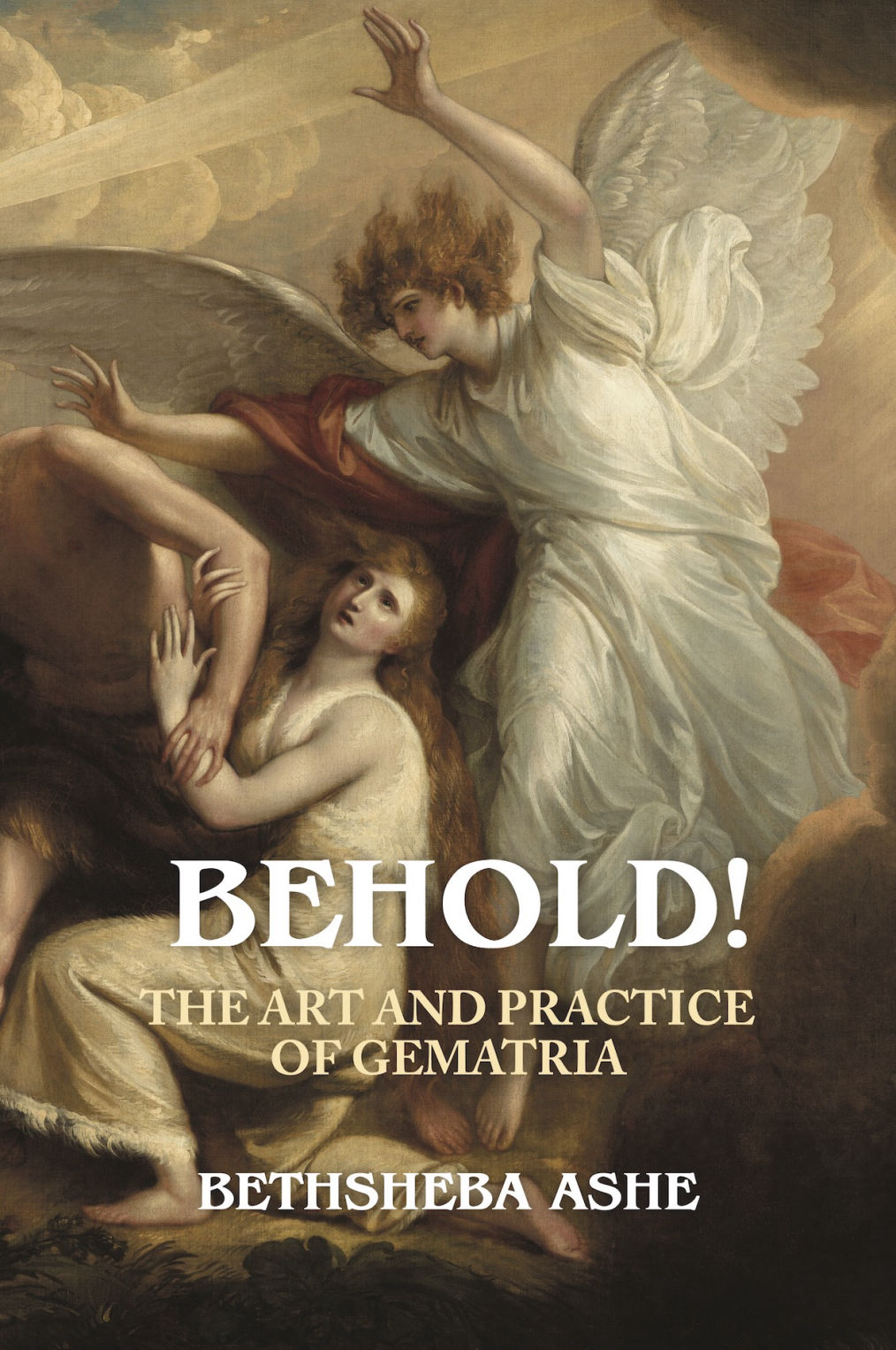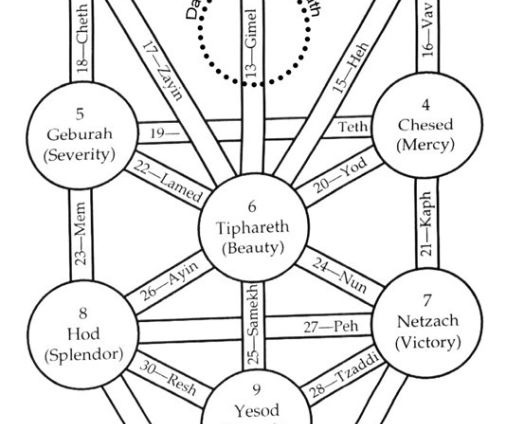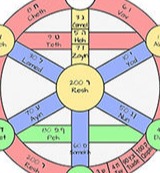Words and Calculations with the same Gematria value ...
| Word | Translation & Meaning | Transliteration | Strong's Number |
|---|
| אביאל | Meaning: Abiel, the name of two Israelites. Usage: Abiel. | ABIAL | 22 |
| אגם | Meaning: a marsh; hence a rush (as growing in swamps); hence a stockade of reeds. Usage: pond, pool, standing (water). | AGM | 98 |
| אגם | Meaning: figuratively, sad. Usage: pond. | AGM | 99 |
| אוזל | Meaning: Uzal, a son of Joktan. Usage: Uzal. | AVZL | 187 |
| אלזבד | Meaning: Elzabad, the name of two Israelites. Usage: Elzabad. | ALZBD | 443 |
| אליאב | Meaning: Eliab, the name of six Israelites. Usage: Eliab. | ALIAB | 446 |
| אמש | Meaning: yesterday or last night. Usage: former time, yesterday(-night) | AMSh | 570 |
| אשם | Meaning: to be guilty; by implication to be punished or perish. Usage: × certainly, be(-come, made) desolate, destroy, × greatly, be(-come, found, hold) guilty, offend (acknowledge offence), trespass. | AShM | 816 |
| אשם | Meaning: guilt; by implication, a fault; also a sin-offering. Usage: guiltiness, (offering for) sin, trespass (offering). | AShM | 817 |
| אשם | Meaning: guilty; hence, presenting a sin-offering. Usage: one which is faulty, guilty. | AShM | 818 |
| בבלי | Meaning: a Babylonian. Usage: Babylonia. | BBLI | 896 |
| בדלח | Meaning: something in pieces, i. e. bdellium, a (fragrant) gum (perhaps amber); others a pearl. Usage: bdellium. | BDLCh | 916 |
| בזיותיה | Meaning: Bizjothjah, a place in Palestine. Usage: Bizjothjah. | BZIVThIH | 964 |
| גולה | Meaning: exile; concretely and collectively exiles. Usage: (carried away), captive(-ity), removing. | GVLH | 1473 |
| גמא | Meaning: to absorb. Usage: swallow, drink. | GMA | 1572 |
| גמא | Meaning: properly, an absorbent, i. e. the bulrush (from its porosity); specifically the papyrus. Usage: (bul-) rush. | GMA | 1573 |
| דלי | Meaning: a pail or jar (for drawing water). Usage: bucket. | DLI | 1805 |
| דם | Meaning: blood (as that which when shed causes death) of man or an animal; by analogy, the juice of the grape; figuratively (especially in the plural) bloodshed (i. e. drops of blood). Usage: blood(-y, -guiltiness, (-thirsty), innocent. | DM | 1818 |
| חול | Meaning: properly, to twist or whirl (in a circular or spiral manner), i. e. (specifically) to dance, to writhe in pain (especially of parturition) or fear; figuratively, to wait, to pervert. Usage: bear, (make to) bring forth, (make to) calve, dance, drive away, fall grievously (with pain), fear, form, great, grieve, (be) grievous, hope, look, make, be in pain, be much (sore) pained, rest, shake, shapen, (be) sorrow(-ful), stay, tarry, travail (with pain), tremble, trust, wait carefully (patiently), be wounded. | ChVL | 2342 |
| חול | Meaning: Chul, a son of Aram; also the region settled by him. Usage: Hul. | ChVL | 2343 |
| חול | Meaning: sand (as round or whirling particles). Usage: sand. | ChVL | 2344 |
| חלאה | Meaning: properly, disease; hence, rust. Usage: scum. | ChLAH | 2457 |
| חלאה | Meaning: Chelah, an Israelitess. Usage: Helah. | ChLAH | 2458 |
| טלה | Meaning: a lamb. Usage: lamb. | TLH | 2924 |
| יגאל | Meaning: Jigal, the name of three Israelites. Usage: Igal, Igeal. | IGAL | 3008 |
| ילד | Meaning: to bear young; causatively, to beget; medically, to act as midwife; specifically, to show lineage. Usage: bear, beget, birth(-day), born, (make to) bring forth (children, young), bring up, calve, child, come, be delivered (of a child), time of delivery, gender, hatch, labour, (do the office of a) midwife, declare pedigrees, be the son of, (woman in, woman that) travail(-eth, -ing woman). | ILD | 3205 |
| ילד | Meaning: something born, i. e. a lad or offspring. Usage: boy, child, fruit, son, young man (one). | ILD | 3206 |
| כידוד | Meaning: properly, something struck off, i. e. a spark (as struck). Usage: spark. | KIDVD | 3590 |
| להט | Meaning: properly, to lick, i. e. (by implication) to blaze. Usage: burn (up), set on fire, flaming, kindle. | LHT | 3857 |
| להט | Meaning: a blaze; also (from the idea of enwrapping) magic (as covert). Usage: flaming, enchantment. | LHT | 3858 |
| לוח | From a primative root probably meaning to glisten; a tablet (as polished), of stone, wood or metal. Usage: board, plate, table. | LVCh | 3871 |
| מד | Meaning: properly, extent, i. e. height; also a measure; by implication, a vesture (as measured); also a carpet. Usage: armour, clothes, garment, judgment, measure, raiment, stature. | MD | 4055 |
| משא | Meaning: Mesha, a place in Arabia. Usage: Mesha. | MShA | 4852 |
| משא | Meaning: a burden; specifically, tribute, or (abstractly) porterage; figuratively, an utterance, chiefly a doom, especially singing; mental, desire. Usage: burden, carry away, prophecy, × they set, song, tribute. | MShA | 4853 |
| משא | Meaning: Massa, a son of Ishmael. Usage: Massa. | MShA | 4854 |
| משא | Meaning: a loan; by implication, interest on a debt. Usage: exaction, usury. | MShA | 4855 |
| משא | Meaning: partiality (as a lifting up). Usage: respect. | MShA | 4856 |
| מת | Meaning: properly, an adult (as of full length); by implication, a man (only in the plural). Usage: few, × friends, men, persons, × small. | MTh | 4962 |
| שלהבת | Meaning: a flare of fire. Usage: (flaming) flame. | ShLHBTh | 7957 |
| שלוה | Meaning: security (genuine or false). Usage: abundance, peace(-ably), prosperity, quietness. | ShLVH | 7962 |
| שלוה | Meaning: safety. Usage: tranquillity. | ShLVH | 7963 |
| שמא | Meaning: Shamma, an Israelite. Usage: Shamma. | ShMA | 8037 |
| תהלה | Meaning: laudation; specifically (concretely) a hymn. Usage: praise. | ThHLH | 8416 |
| תהלה | Meaning: braggadocio, i. e. (by implication) fatuity. Usage: folly. | ThHLH | 8417 |
| תולד | Meaning: Tolad, a place in Palestine. Usage: Tolad. | ThVLD | 8434 |
| תכך | Meaning: to dissever, i. e. crush. Usage: deceitful. | ThKK | 8501 |
| תלי | Meaning: a quiver (as slung). Usage: quiver. | ThLI | 8522 |
| תם | Meaning: complete; usually (morally) pious; specifically, gentle, dear. Usage: coupled together, perfect, plain, undefiled, upright. | ThM | 8535 |
| תם | Meaning: there. Usage: × thence, there, × where. | ThM | 8536 |
| תם | Meaning: completeness; figuratively, prosperity; usually (morally) innocence. Usage: full, integrity, perfect(-ion), simplicity, upright(-ly, -ness), at a venture. | ThM | 8537 |





Please SHARE this PAGE!